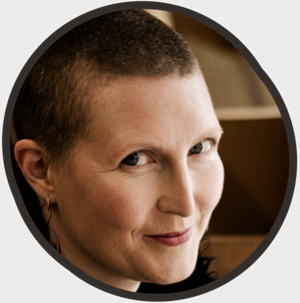He’s So MASC by Chris Tse
(AUP, 2018)
I’m lying in bed with Chris Tse.
Well, Chris Tse the Poet is currently in Iceland, posting photos of the Northern Lights and waterfalls on Twitter, while I’m with Chris Tse in Book Form in Vermont, exclaiming every time I see a red maple leaf on the footpath. And exclaiming while I read his poetry. And sometimes cursing him, for being so damn good.
Damn you, Chris Tse.
The short version of this review: most of these poems make my insides ache, and I keep wondering if maybe I’m a gay man, because they connect with me so much.
The longer version of this review: when you read this book, maybe you’ll feel like Chris is writing your life. Even though your life is different to his life. And that’s what makes poetry magical.
I missed Chris’s first book, How to be Dead in a Year of Snakes, because it was during my (incredibly long) period of not reading much new poetry, because none of the poetry I was reading made sense to me. I was in full I Hate Poetry mode. Yes, I know, it’s a terrible thing for a poet to say. But, still, the truth. I think the first piece of his writing I read — at least, the first time I read something and his name clicked into my head — was “Punctum”, which is one of my favourite poems in He’s So MASC.
The sense of humour in it clicked with me, along with the underlying this isn’t about being funny message. Chris starts out with the proclamation:
This is my blood oath with myself: the only
dead Chinese person I’ll write about from now on
is me.
And then proceeds to examine his life as a Chinese woman and what his (her?) children’s acting careers will be like (hint: not much). It’s also about other things. You’ll have to read it.
Part of what I like about Chris’s writing is all the cultural references — to music, to television. Just reading the title “Tonight, Matthew”, I had to put the book down for a prolonged snort of laughter, while Jem and the Holograms make an appearance, along with Taylor Swift and Grease and others. And I get that why I like these cultural references is because they’re also my cultural references, and so that immediately invites me in like a welcome mat (although the welcome mat would have sequins, because, well, sequins! Maybe that’s what the sparkle-motion cover really is, an artistic, sparkly, welcome mat)
There are poems that I can’t actually tell you what they’re about, because I can’t figure it out for myself.
But with most of those, I can tell you that even if the words didn’t click into some form of knowing in my head, something inside of me still got them. “The saddest song in the world” is one of these. There are so many moments when my brain went huh?, but I cried while I read it. And there are wolves… many, many wolves. There are a couple of poems that didn’t quite work for me, but maybe they’ll work for you. It’s hard to be too harsh on those ones, when so many are doing such amazing work.
Other personal favs: “Choose your own adventure”, which starts ‘If attraction, say yes / If rejection, start again’ and “Performance–Part 2” which has the gasp-worthy lines ‘My friends—I can be / anything you don’t want’ (Damn you, Chris, for writing such brilliant lines!). And then there’s the poem “I want things that won’t make me happy” (did I mention that his titles are sublime?) with:
It’s like every time I go
out clubbing and flirting
I come home with another skeleton to bury.
Before we went on our respective travels, Chris and I grabbed a coffee (well, neither of us had coffee, but we met somewhere that serves coffee). I advised him that I’m a flicker — I only read a poetry book cover-to-cover if I’m reviewing it, otherwise I flick through the book for the poems that catch my eye or insides on any given day. He looked vaguely horrified by this. So as I read He’s So MASC without flicking, starting at the start and working my way through to what may or may not be the end (but is an outro), I kept jiggling impatiently. Because I knew there was a poem up ahead that I wanted to rush to and roll around in, even though every time I read it, I cry.
“Release” is a poem that will grab your heart and squeeze it till you gasp. It will pummel your tear ducts. No single part of it seems to do justice to quote but, if I have to offer you something:
The books by my bed
will still tell me beautiful lies and
every passing song will fill my head
with the empty spaces of you—
even the dance songs (especially
the dance songs).
If I ever grew up, I’d want to be Chris Tse. And then maybe Taylor Swift would write me a song. While I’d write stunning poetry. And wear sequins.
First published in a fine line (New Zealand Poetry Society magazine) (2019)




